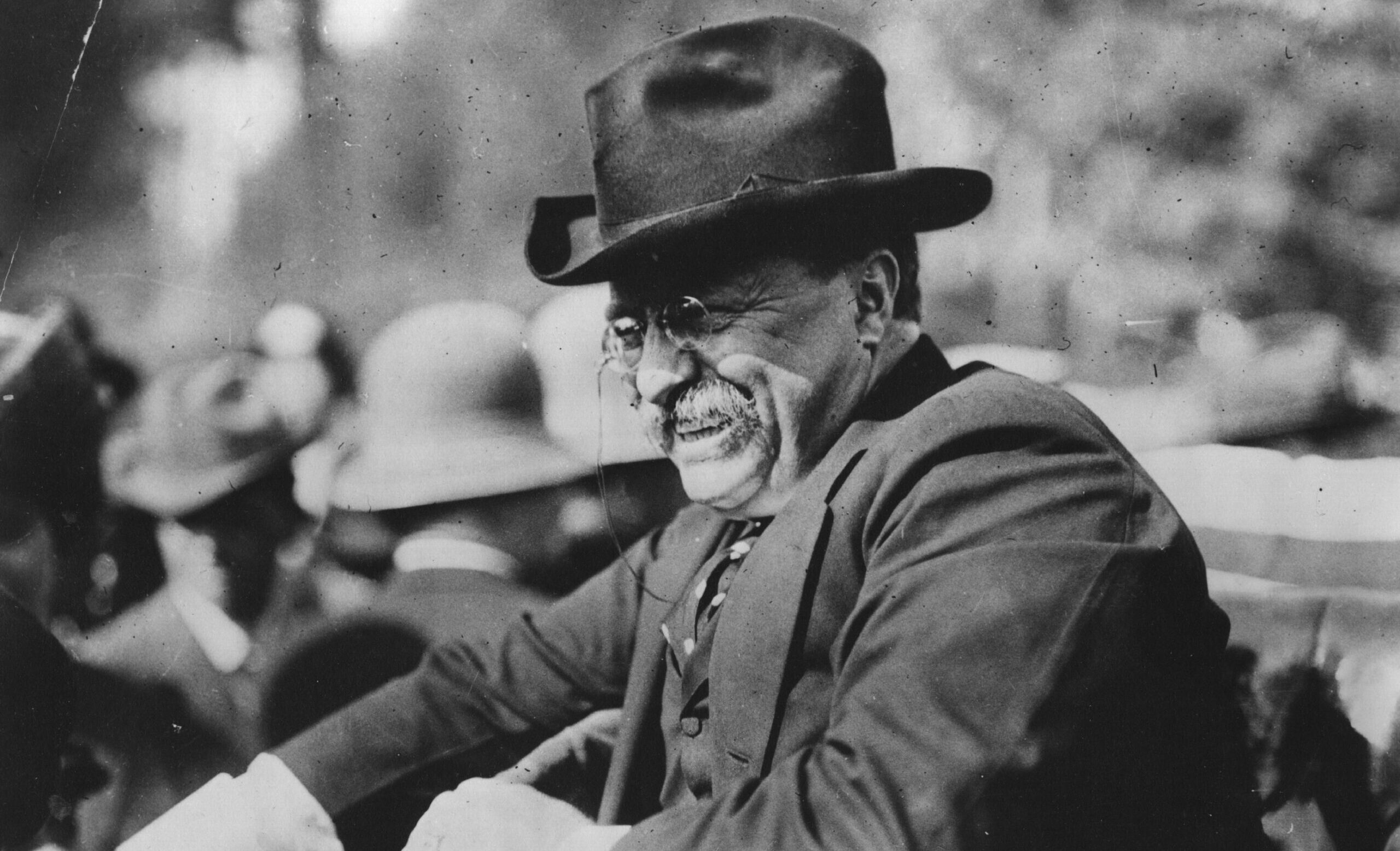This review appears in the Winter 2015 issue of Modern Age. To subscribe now, go here.
Edmund Burke in America:
The Contested Career of the Father of Modern Conservatism
by Drew Maciag (Ithaca, NY: Cornell University Press, 2013)
Edmund Burke in America is ideological special pleading parading as intellectual history. As history, this book is a mess. The author, Drew Maciag, creates vacuous reifications, makes claims to cause and change without recourse to empirical evidence (textual or other), and writes history with that special command that comes from applying an obsessively teleological framework to the past. The book reflects the worst tendencies of a certain ideological triumphalism as applied to intellectual history.
In purpose and design, Edmund Burke in America had promise. “This book,” begins Maciag, “rests on the premise that American opinions about Edmund Burke provide unique insights into the history of political thinking in the United States.” Setting aside questions we might raise about “unique insights,” it appears that the project of the book is to use a history of interpretations and appropriations of Burke as a way of understanding American political thought. The richness of Burke’s ideas, as well as the power of his rhetorical gift, makes him a fount of many and diverse political, cultural, and moral arguments.
Who can doubt that the very complexity and beauty of Burke’s writings makes him vulnerable to all manner of appropriations for diverse and conflicting causes? Burke was a Whig who defended monarchy and tradition, a commoner who defended aristocracy, a reformer who penned the most beautiful and romantic paean to the reactionary spirit. No systematic thinker, his best works come deeply entangled with very specific political events of his time. To the degree that Burke’s ideas would matter after his death, one might reasonably expect that very different people during very different crises would draw powerfully from his work. If Burke had been more systematic, Maciag would have no reason to use him as a lens to understanding the development of American political thought.
The enticing promise of the book’s project is of a supple, deeply contextual, ironic, and dualism-destroying history that belies our left-right, liberal-conservative dichotomies. Not only did Maciag fail in this project; it becomes clear that such was not his real objective. In places, the author attempts to sketch chapters in such a history. We find the Burke of the Federalists to be situated in the context of the French Revolution, of Thomas Paine’s atheistic defense of that revolution, and American exceptionalism. Later, during the so-called age of the common man, we discover a very different engagement with Burke by George Bancroft, who found the aesthetics and defense of “cultural conservatism” a powerful resource as a counterpoise to the bumptious quality of democratic popular culture. Here we have the beginning of what the author calls the “culturally conservative Progressive,” and here we can sense how it is that the complexity of Burke might indeed provide a lens to examine different generations of American thinkers responding to their own times. Alas—opportunity lost.
A more tendentious and ideological goal becomes evident by the time the author examines the Progressives. Maciag admired the appropriation of Burke by Progressives. While necessarily selective in their reading, Theodore Roosevelt and Woodrow Wilson culled Burkean insights for their own times in a nonideological fashion (this Maciag contrasts later with an ideological appropriation by conservatives). They found in the “progressive-traditionalist” Burke a political actor and thinker who sought reform rather than experimentation. And so Maciag offers several examples of Burke well used—used to support reform that is not radical or deeply experimental. And so we discover that Burke’s principles, when drawn into the modern American context, are really prudently progressive.
Burke is misunderstood today, the author avers, because he was hijacked by conservatives who are Burke’s “illegitimate heirs.” Rather than using myriad appropriations of Burke’s work to illuminate American political thought, as we have been promised, Maciag’s book, as it turns out, is a paternity brief. To make his claim to being Burke’s legitimate heir, he must offer a corrective interpretation of Burke’s political philosophy and then offer an authoritative description of the nature of America as a liberal-progressive nation. The question is whether the DNA matches.
This is not a book about Burke’s political philosophy, but its arguments depend upon a characterization of that philosophy. Let’s be honest—given the extensive secondary literature, the centuries of debate, and the elusive and rhetorical nature of Burke’s writing, the task of laying down an authoritative and simple characterization of Burke is daunting. Undaunted, Maciag writes a very brief chapter about Burke’s biography and philosophy—a chapter both superficial and tendentious. He doesn’t engage in the secondary literature nor does he make a sustained textual case for his Burke. He asserts rather than demonstrates, producing a simple intellectual profile.
The short overview of Burke’s life and thoughts is less about exploring the complex and historically rooted nature of his subject (though there are nods to both) and more about informing dear reader that Burke was a good reformer, largely unconcerned with theology while being devoted to the cause of progressive change and justice. This chapter has the feel of a woman looking at an old portrait and noting that she and the figure in the painting share the same high cheekbones.
Moreover, we learn that America is a liberal nation, with conservatism being sometimes a pathological reaction to the modern world and other times a healthy partner with liberalism, like the oxpecker bird living symbiotically with the rhinoceros. These arguments are hardly earned—Maciag writes as an oracle rather than a historian, which one might overlook if his characterization had some texture or shadings.
Long ago we read rather excellent books about the “American Mind” or the “Puritan” or even “Conservative Mind.” Historians described “climates of opinion” and gave us sparkling generalizations that no empirical examination could support fully. Of course we all knew that there was no single “American Mind,” but to read Henry Steele Commager on the subject was to enter into a supple, complex, and beautifully tensional story in which thematic unities gave energy and direction without destroying the richness of particularity of the subject. The political weight of social history eventually crushed these delicate and elitist accounts of ages, eras, and national minds. And lest we get nostalgic for those days of storytelling, let’s remember that for every Perry Miller or even Russell Kirk, there were a hundred writers who turned these refined accounts into crude and simplistic reifications allowing labels to stand in for evidence.
So why have scholars returned to the crutch of ill-defined labels to tell their stories? The answer may lie in their desire to import teleology into their accounts—this despite the powerful strain of American leftist thought that rejected essentialism in favor of deep historical contingency. We might wonder why certain thinkers on the Left, to say nothing of various self-described liberals, have turned to teleology and an implied essentialism. To gain popular control over claims to an American essence—which is to say a normative description of our past—is to gain political power to shape the future.
At least in political discourse and the scholarly apparatus designed primarily to support political causes, we find many versions of this essentialist argument. We are told to be “on the right side of history” or that we are “bending the arc of history,” just as we are schooled to think of America as the working out of basic moral principles that lead to freedom defined in terms of the unfolding story of equality. The effect of believing in this construction of our past is to accept a certain progressive and moral logic to our history, dotted though it may be with temporary reversals. It follows that there is moral direction to our history, making those who want to “turn the clock back” into dangerous or frightened or sad characters who represent, often unwittingly, the forces of repression. Whether the forces of repression can only slow progress or can derail the entire story is always left ambiguous for political reasons.
* * *
Maciag’s account is thick with broad labels that point to the direction of history and the key dynamic of any given age. Note two sentences from the same paragraph. First: “The mission of antebellum America was the reconciliation of democratic egalitarianism with social and political order.” Second: “With the tragic exception of slavery and its related doctrine of states’ rights, the age-old problem of tyranny and injustice now seemed to be subject to a rational democratic control.” And so Jacksonian America has a “mission”—a specific part to play in the development of a liberal society—which will put off ending the sin of slavery and its intellectual and institutional support for another generation, presumably in the fullness of time.
Broadly speaking, this account of America begins with the “Enlightenment,” which provides the driving logic of the American story. Those who challenge the unfolding of this logic in time are anti-Enlightenment, and so here we have the ill-defined root of liberal and conservative labels. I do not know what to do with this expansive and vague category “Enlightenment.” If Maciag means certain strains of thought in the Anglo-American tradition, including people as diverse as
Benjamin Franklin, David Hume, Adam Smith, and the Scottish Common Sense school, then one has to accept Burke as a figure of the Enlightenment, as well as the conservative intellectuals who think of themselves as his heirs. It all depends on definitions, but the act of defining would have the effect of undermining the vague charm of this word and its association with one side of the political divide in America.
The problem of reductive labels and simple causation plague most chapters of this book, none more so than with Maciag’s examination of the conservative “entrepreneurs” who hijacked Burke for their anti-Enlightenment agenda. I will have to forgo any serious engagement with Maciag’s definitions and use of sources (or avoidance of sources). What is of interest here is his account of why Burke returned to the American scene after World War II and became a conservative. One of his unexamined assertions concerns a “desperate effort” by conservatives to fight liberalism. In desperation they turned to the long discredited natural law tradition and improperly baptized Burke as an advocate. This makes sense for Maciag because conservatives are congenitally disposed to fear uncertainty, and so they grasp at final moral answers and look for acceptable advocates to shore up their position.
Putting aside the dubious psychology, Maciag has opened a very interesting subject, and his analysis is not entirely incorrect. The subject is confusing because the phrase natural law can cover much territory—a fact he never acknowledges. His claim that natural law was largely absent from the American context before the 1950s is only true if one means the narrowest definitions that attach it to a Thomistic tradition. But before Darwin, at least, most American intellectuals would have accepted the idea of an orderly universe and maintained that by studying the universe one can understand the laws that govern it, including moral laws. The rejection of those more basic ideas in the late nineteenth and early twentieth centuries certainly problematized the broad consensus and probably served as a necessary condition for the subsequent rise of a more particular version of natural law.
This Catholic version of natural law emerged with great intellectual energy in the 1950s, and people like Russell Kirk (who would only later become a Catholic) incorporated Burke into their account of the tradition. It is a very interesting and serious question as to whether the natural law advocates of the 1950s were correct in their interpretation of Burke. I don’t think they were—or at least one can claim that they were creating a patrimony for their ideas rather than discovering one. The Burke who emerged as the “father of American Conservatism” was an excessively narrow version of the thinker, and the intellectual and political success of this myth of Burke had many long-term effects, including causing liberals and conservatives alike to ignore the complexity of the man.
More troubling, Burke became a sort of totem. All manner of people on the right would invoke him or quote him without making any attempt to understand him. He became an abstraction—the worst historical fate for the author of Reflections. In the course of many crises, and in defense of many small crusades, Burke’s name and select quotations were deployed to give intellectual backing and to rally the troops. And so there is something serious for the author to examine here.
Unfortunately, Maciag’s examination of the conservative Burkeans is clumsy and often unfair. His discussion of the work of Bruce Frohnen, for instance, seems perversely intent on misunderstanding. Indeed, at the real heart of this book, where a liberal engagement with conservatives about Burke might have been possible and productive, the author treats serious scholars in caricatures (at best), failing utterly to draw out the complexity of their claims and missing the primary thrust of their arguments. It is as though the very definitions he provides for liberals (open, tolerant, willing to change, dedicated to reason) and conservatives (closed, seeking to prevent change, fearful, rejecting reason) forces his tone and his conclusion. “Conservatives yearn for a society that . . . remains fundamentally unchanged.” Really? Where are these conservatives? Because “the United states was founded upon principles of ‘fresh start’ liberalism,” it follows that conservatives are hostile to the very essence of the American project or mission. This is argument by labels, not evidence.
Burkean conservatives ought to take seriously the basic questions behind Maciag’s critique concerning the use and appropriation of Burke to modern America. But this examination, if it is to be done well, must stress the complexity of both America and Burke, must take seriously historical contingency, the openness of the future, the overwhelming and unknowable power of the past (only partially expressed as history) on the present and the near future. I suspect that we need not only a good Burkean critique of this book but a good Burkean critique of American conservatism as well.
Ted V. McAllister was the Edward L. Gaylord Chair and professor of public policy at Pepperdine School of Public Policy.













